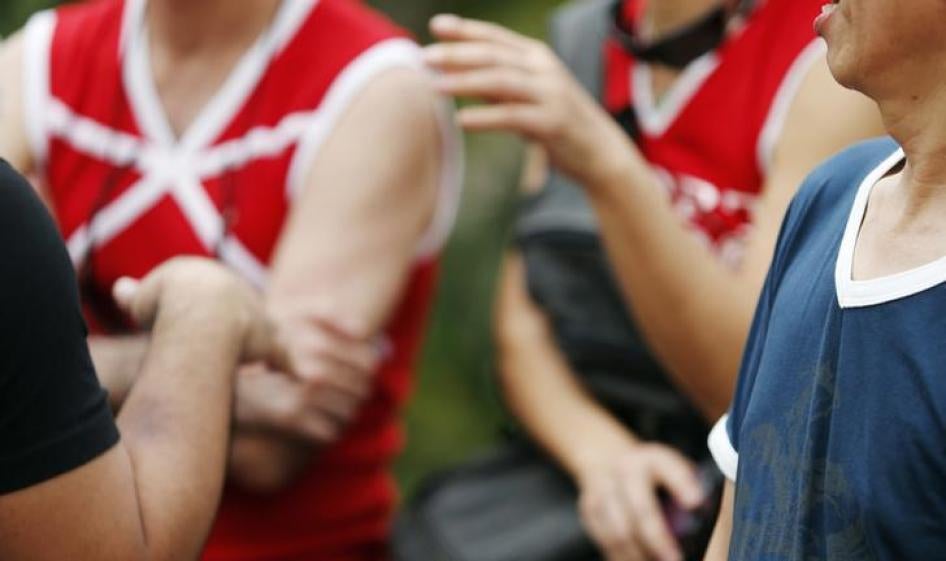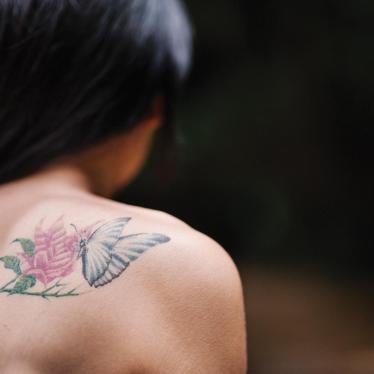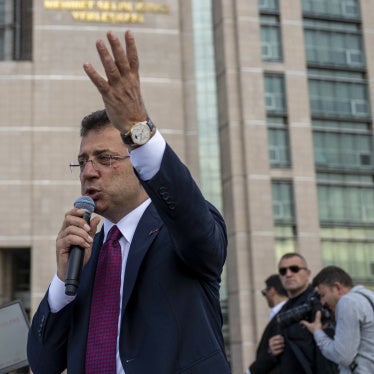It was a rare positive outcome for lesbian, gay, bisexual and transgender (LGBT) people in Malaysia.
Earlier this month, the Health Ministry, in response to strident criticism from activists and the general public, reframed the terms of a youth video competition, removing language and criteria that stigmatized LGBT identities in favor of language that appears to affirm them. But will the rest of the government embrace this rights-respecting stance by the Health Ministry?
The National Creative Video Competition on Adolescent Sexual and Reproductive Health, which opened on June 1 with the stated theme “Value Yourself, Practice Healthy Lifestyle,” initially called for young people ages 13 to 24 to submit original videos on three topics: “sexual reproductive health,” “cybersex” and “gender dysphoria.” (The Bahasa Malaysia term, kecelaruan gender, has previously been translated by government agencies as “gender confusion.”)
In the guidelines for the gender dysphoria category, teens were invited to address “prevention, control and how to get help” for people including “lesbian, gay, transgender (mak nyah), transvestite, tomboy/pengkid and others.”
Civil society activists sprang into action to demand changes. Nisha Ayub, an internationally recognized transgender activist and the co-founder of Malaysia’s Seed Foundation, told the media that the competition was “encouraging discrimination, hatred and even violence towards the minorities.”
Pang Khee Teik, another activist, denounced the competition’s conflation of gender identity and sexual orientation, saying, “The very fact that they lump LGBT people under a category called ‘gender confusion’ shows that the authorities are very much confused themselves.”
Several Malaysian and international organizations, including the Malaysian AIDS Council and Human Rights Watch, issued statements or wrote to the Health Ministry in protest.
The initial response from the Health Ministry was defensive. Their initial statement accepted no responsibility for advancing discriminatory ideas about LGBT people, insisting that the competition was in accordance with the Convention on the Rights of the Child in promoting knowledge about sexual and reproductive health.
But as criticism intensified, the ministry reached out to civil society organizations to request a meeting, which took place on June 7 and included Nisha Ayub, the Malaysia AIDS Council, and PT Foundation.
Following the meeting, the ministry changed its tune. It issued revised competition guidelines, replacing the “gender dysphoria” category with a category on “gender and sexuality.”
The guidelines explain: “Gender refers to personal conviction and how one sees roles as a woman or a man as a result of social and cultural constructs or upbringing. Sexuality is important in a human's life in terms of physical, cognitive, emotional, social and spiritual aspects.”
The momentous nature of this shift in perspective needs to be lauded. Once one recognizes that gender is a social construct, laws, and policies that discriminate against LGBT people do not stand up to scrutiny. The fact that a part of the government has come to acknowledge this, as a result of open dialogue with civil society organizations, is a positive move.
Unfortunately, discriminatory laws and policies abound in Malaysia. If the Health Ministry has indeed progressed in its understanding of gender and sexuality, other government agencies show little sign of making comparable strides.
Malaysian law criminalizes both homosexual conduct and transgender identities, and state religious department officials regularly arrest transgender women simply for wearing clothing deemed not to pertain to their assigned sex.
An Impressive Turnaround
Events in recent years demonstrate a litany of attempts by the government to shut down discussions of sexual orientation and gender identity.
In 2011, police banned the “Seksualiti Merdeka festival” (featuring workshops, talks, and performances on sexual diversity and LGBT rights), calling it a “threat to public order.”
In 2012, the Information Department prohibited radio and television programs from featuring “gay, effeminate men … because this encourages and promotes LGBT.”
And in 2013, the Information, Communication, and Culture Ministry sponsored a play called “Asmara Songsang” (Abnormal Desire) and supported performances of the play in schools and universities around the country. The explicit aim of the play was to “warn young people about the perils of being lesbian, gay, bisexual, and transgender.”
In February 2017, the Islamic Development Department (Jakim) endorsed so-called “conversion therapy,” claiming that gays should seek guidance from God, “repent,” and enter into heterosexual marriages.
In March, the Film Censorship Board demanded that Disney edits out four minutes of the children’s film “Beauty and the Beast” because of a “gay moment.”
Fortunately, when Disney refused to make any cuts to the film, the board eventually backed down and allowed the unedited film to be screened in Malaysia.
Private actors have also curtailed pro-LGBT speech. In May, Taylor’s University in Subang Jaya canceled a three-day Pride celebration organized by Pelangi, an LGBT rights organization.
The Health Ministry’s revised video competition – by creating space for young people to address themes of gender and sexuality, broadly conceived – could provide much-needed airing of positive images of LGBT people.
There are few openly LGBT role models for queer or questioning Malaysian youth to look to, and the few who speak out do so at great personal risk.
Nisha Ayub, the transgender activist, was attacked by two men wielding iron bars in late 2015, and the police never identified the assailants or brought anyone to justice for the brazen, daylight attack.
And on June 15, an 18-year-old Penang teen, T Nhaveen, died after a group of teenagers allegedly beat and raped him while taunting him with insults such as “pondan,” a derogatory Malay term for an effeminate male, a gay male, or a transgender woman.
The video competition’s target group includes young people who may be at the very early stages of understanding their own sexual orientation or gender identity. When government or authority figures disseminate negative images of LGBT people, they can reinforce self-stigma and self-hate among vulnerable youth.
Studies in other countries, including throughout Asia, indicate that LGBT teenagers suffer from high rates of suicide and depression – not because being LGBT is itself a problem to be “prevented” or “controlled,” but because of pervasive violence, discrimination, family rejection, bullying, and other manifestations of intolerance.
In contrast, disseminating positive images and creating safe spaces for dialogue can lead LGBT young people to feel confident, safe, and protected.
The Health Ministry deserves to be congratulated for seeking dialogue with activists from LGBT communities and making an impressive turnaround.
Others – including Jakim, the state religious departments, the censorship board, and the police – should also stop harassing, arresting, and stigmatizing LGBT people, and try listening to them instead.








